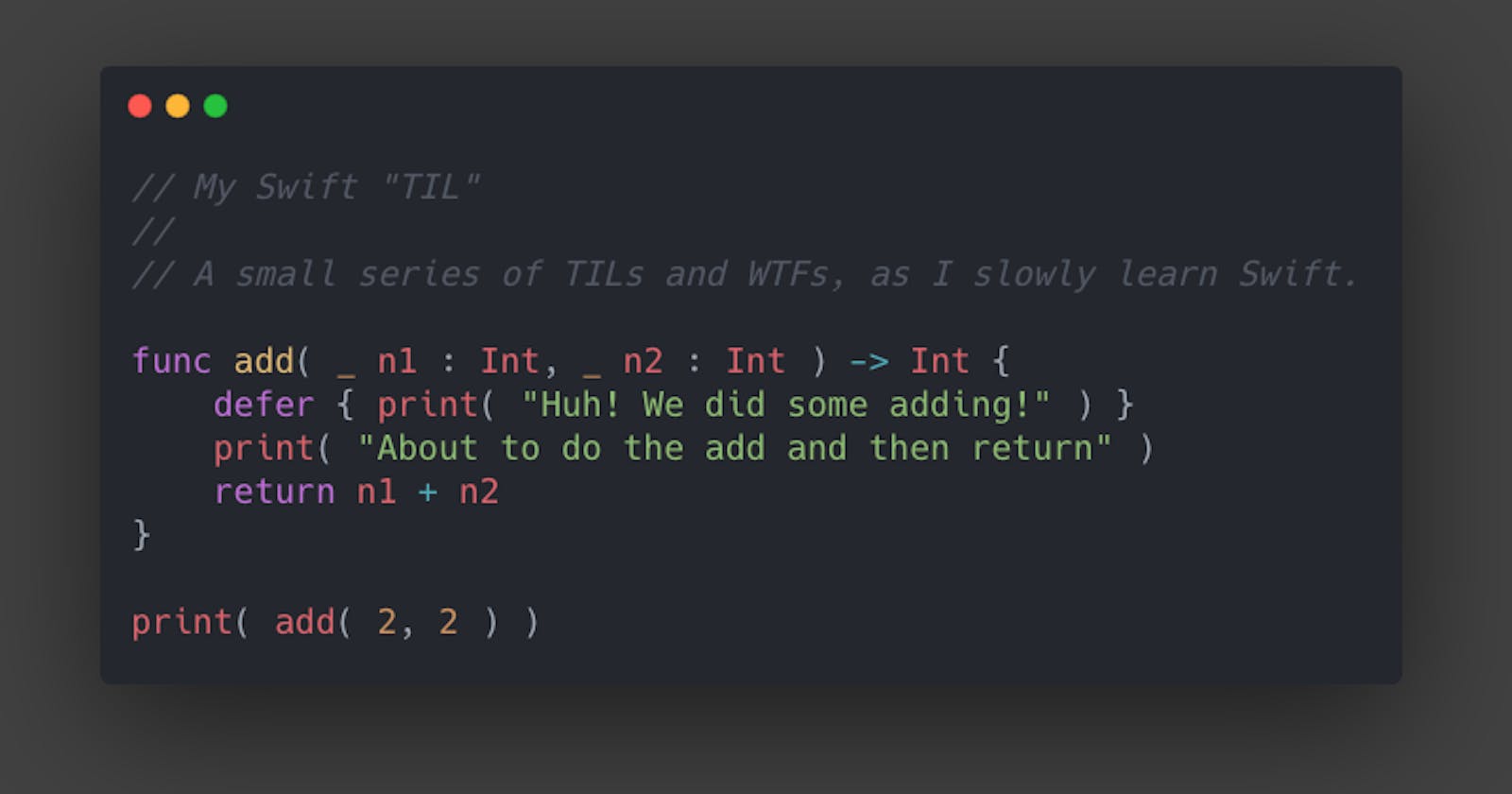My leisurely journey into getting to know Swift by reading and then making notes to myself in my blog continues, and this weekend I encountered defer. As I was reading about Swift I did keep wondering when something like try (it has try), catch (it has catch) and finally (it doesn't have finally, but...) might crop up. This weekend I hit the part of the book that covered this sort of thing.
Given Swift's apparent general reliance on not throwing errors but instead using Optional and nil to signify issues, it sort of came as no surprise that its approach to implementing something like try...finally is actually divorced from try. I'm not sure how I feel about it yet, but defer makes sense.
Here's an utterly useless bit of code that demonstrates how it works:
func add( _ n1 : Int, _ n2 : Int ) -> Int {
defer {
print( "Huh! We did some adding!" )
}
print( "About to do the add and then return" )
return n1 + n2
}
print( add( 2, 2 ) )
When run, the output is this:
$ swift run
[3/3] Linking try-defer
About to do the add and then return
Huh! We did some adding!
4
A defer (and there can be multiple) is tied to the block that it's declared in, and is executed when the block exits. This is, of course, going to be really handy for things like resource-management where you don't want to be leaking something, although I can imagine a few other uses too (none of which are really going to be novel for someone who's coded in other languages with similar constructs).
What I find interesting about this is that one or more defer blocks can be declared at various locations within a block of code; this obviously makes sense in that you might not want to be handling the tidy-up of something you've not got around to creating yet. But there's also part of me feels uneasy about the "exit" code being declared further up the body of code, rather than down towards the end. On the other hand I think I do appreciate the idea of, up front, writing "look, any time there's a GTFO in the code that follows, this will happen" -- you're made aware pretty quickly of what to expect.
Anyway, it's good to know Swift has something similar to a finally.
